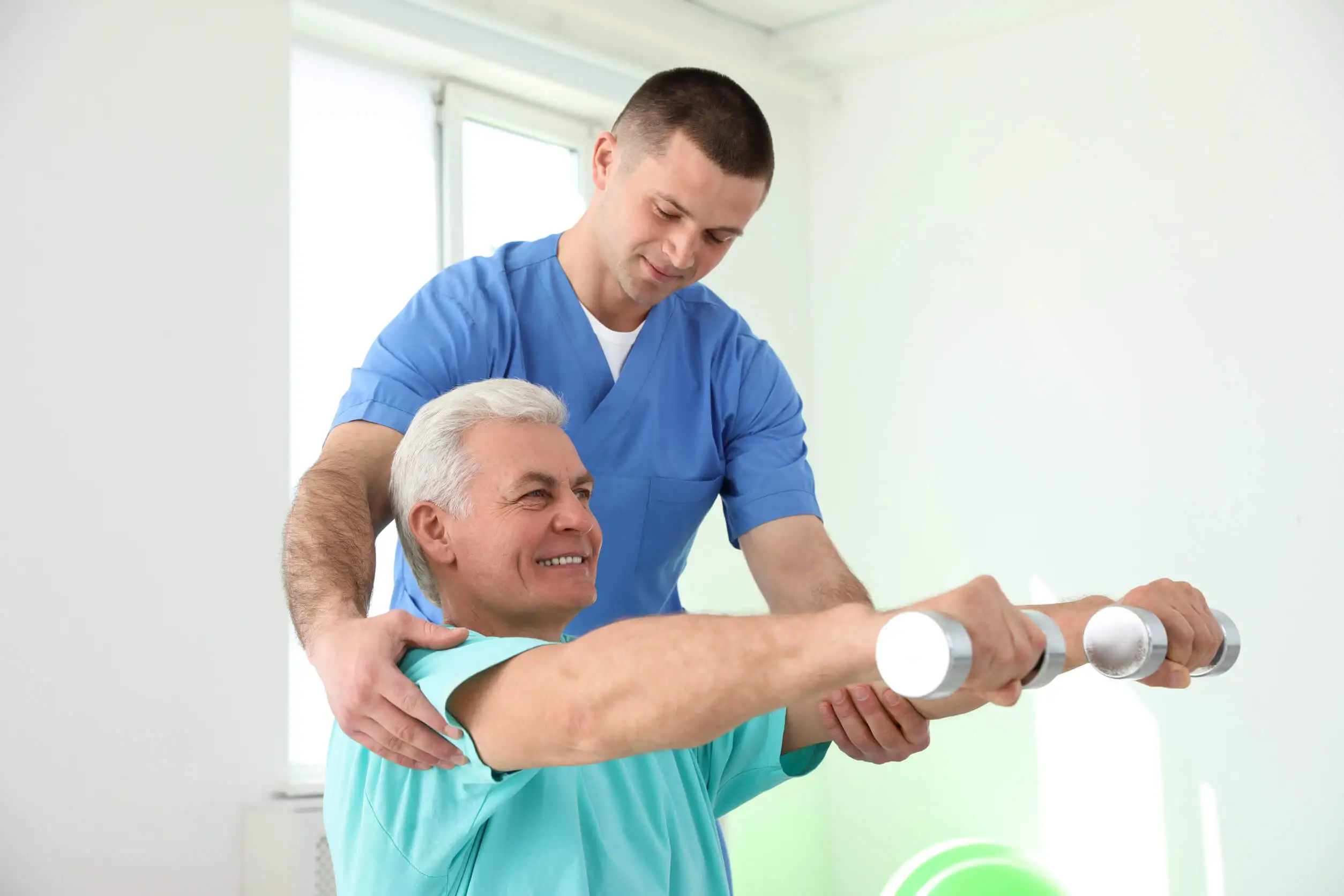Exercise and Heart Disease: What Should You Take Into Account?


Reviewed and approved by the nurse Leidy Mora Molina
People with heart disease benefit greatly from controlled exercise done under medical supervision. Having heart problems sets certain limits when it comes to physical activity, but that doesn’t mean we shouldn’t do any. On the contrary, it’s very important to maintain a good physical and psychological condition.
Among other things, avoiding a sedentary lifestyle will bring other important health benefits. For example, it lowers cholesterol levels, regulates blood pressure, prevents obesity and improves mood.
It’s essential for adults, young people and children with this type of pathology to adopt a training routine. Below we’ll detail how to do it and what recommendations to apply. Read on!
The importance of physical activity
Maintaining regular physical activity is important for anyone, but more so for those with heart disease. Most notably, this helps to strengthen the myocardium, that is, the heart muscle. This prevents various symptoms, such as chest pain.
Exercise also has a positive effect on glucose control, intestinal function and calcium fixation in the bones. It also helps maintain proper weight, which is key to preventing many health problems.
However, people with heart disease should exercise under medical supervision. It isn’t advisable for them to engage in spontaneous physical activity, especially if they have suffered a recent heart attack, have undergone surgery, have diabetes or have frequent chest pain.

Read also: 6 Types of Heart Disease and the Symptoms They Cause
Exercise and heart disease: what to do?
People with heart disease should always consult their doctor before starting an exercise program. Likewise, they should consult them if they want to increase the degree of difficulty of their routines or if they have any type of discomfort when performing them.
Ideally, each plan should be implemented gradually. That is, start with a gentle activity such as walking, swimming, jogging or cycling, always with caution. This can be repeated 2 or 3 times a week, depending on physical condition.
Other aspects that should be taken into account are the following:
- Before exercising, it’s advisable to do 5 minutes of stretching, or walk a little to warm up.
- When you finish, you should do the same exercise, but more slowly. The objective is to cool down the muscles, including the heart.
- If there’s fatigue or any type of cardiac symptom, you should stop.
- In hot weather, it’s best to exercise early in the morning or in the evening.
- Resistance training with weights could be very helpful. However, it doesn’t help people with heart disease as much as aerobic exercise does.
- It’s better to do more sets of light exercises, than just a few sets of intense exercises.
- An adequate breathing rhythm should be maintained. If necessary, it’s advisable to consult a trainer or a physiotherapist.
- Loose-fitting clothing should always be worn. Tight-fitting clothing isn’t recommended for people with heart disease.
- A formal cardiac rehabilitation program may be the best option. This should be discussed with your health care provider.
You might also be interested in: How to Eat Healthy to Keep Your Heart Healthy
A check-up beforehand
One of the aspects that should be considered is the realization of a check-up prior to the start of physical activity. This is much more important when people with heart disease want to start a competitive sport.
It’s advisable to have a detailed review of the clinical history, as well as some tests. These include an electrocardiogram and Doppler echocardiography. Other tests, such as an angiography, coronary angiography, etc., may also be required.
The same applies to children with heart disease. It’s common for parents to tend to overprotect them and prevent them from practicing sports, especially if they’re competitive. In reality, they only require medical authorization after a medical check-up.
As a general rule, minors with these pathologies can exercise and practice sports without any problem. The only thing that must be regulated is the intensity of the physical activity. If a particular sport requires a lot of effort, a prior examination will detect if there’s any risk.

Final recommendations
It’s very important for people with heart disease to be aware of the danger signs. Signs such as chest pain, dizziness, lightheadedness, dizziness, irregular heartbeat, shortness of breath, or nausea should be considered warning signs. If these are experienced, it’s best to stop exercising.
If you stop the activity, but the symptoms don’t disappear, it’s advisable to see a doctor as soon as possible. If the symptoms dissipate after stopping the exercise, however, it’s advisable to take note of what happened and discuss it with the doctor at the next check-up.
All cited sources were thoroughly reviewed by our team to ensure their quality, reliability, currency, and validity. The bibliography of this article was considered reliable and of academic or scientific accuracy.
- Díez, J., López, B., González, A., Ardanaz, N., & Fortuño, M. A. (2001). Respuestas del miocardio al estrés biomecánico. Revista española de cardiología, 54(4), 507-515.
- Hernández Burgos, N. (2020). Impacto del ejercicio físico en pacientes con enfermedad inflamatoria intestinal. Revisión sistemática.
- Rodriguez, M. (2013). Valoración funcional y prescripción de ejercicio en pacientes con cardiopatía. Centre de Medicina de l’Esport de l’Ajuntament de Granollers. Barcelona, 221-226.
This text is provided for informational purposes only and does not replace consultation with a professional. If in doubt, consult your specialist.








